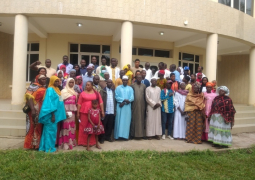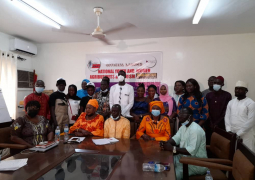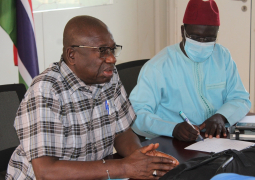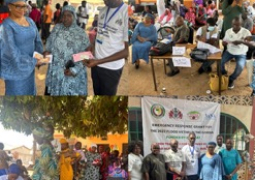The bill seeks to provide a legal framework to regulate the processing of personal data in order to promote, protect human rights and fundamental freedoms of individuals and in particular the right to privacy in accordance with its embedded provisions in line with the constitution of the Republic of The Gambia.
After a careful scrutiny, the assembly passed a motion to commit the bill the ITC committee.
In presenting the bill, Minister Ceesay explained that the bill and related matters emerged in the 1980s when the council of Europe felt the need to formulate a legislation that would later become a global convention called convention 108 plus.
In the context of processing personal data, he said ‘Convention 108 plus emphasized the protection of individuals by holding data processors’ and controllers accountable for the security and integrity of private, confidential or personal identifiable information of data objects.
That initiative, he went on, was necessitated by developments in ICT combined by the growth in connectivity and of internet enabled services.
This, he said, has led to intensive and automated collection and use of richly detailed personal data in greater volumes by both the private and public sectors.
He further stated that “while these developments are accelerating economic and social development opportunities and benefits, they are also generating new risks for individuals around the world, including the Gambia.
“To mitigate the risks associated with increased use of personal data and safeguard human rights to privacy, it is important that the law enforcement agencies, prosecutors and judiciary are bound by the requisite principles and legislation that would safeguard human rights to privacy.”
“This bill was initiated by the defunct Ministry of Information and Communication Infrastructure in collaboration with Council of Europe and it went through a rigorous multi-stakeholder consultative process, where all key stakeholders including ministries, departments and agencies, oversight and regulatory authorities, private civil society organizations and local government authorities, were engaged during the consultation process. It culminated with the development of the fourth draft bill.”
“Thereafter, the Data Protection and Privacy Committee, DPPC, was established and tasked to review the quality assurance components of the use of the Bill to ensure the legislation or the integration of specific local contexts while adhering to international best practices.” he clarified.
He added; “The DPPC comprises 12 entities as follows: The Ministry of Information and Communication Infrastructure, formerly, the Ministry of Justice, the Ministry of Gender, Children and Social Welfare, the Ministry of Interior, Public Utilities Authority, Gambia Consumer Protection, Gambia Consumer and Competition Protection Authority, the Gambia Bureau of Statistics, National Human Rights Commission, the Gambia Submarine Kingdom, the Gambia Police Force, Financial Intelligence Unit, the Gambia Bar Association, the Gambia Cyber Security Alliance, Office of the National Security and State Intelligence Services.
“The bill, if enacted, will help government to protect personal data and associated fundamental rights and freedoms and, in particular, the right to privacy to ensure public trust in the use of personal data, which is consistent with Section 2.3 of the 1997 Constitution of the Republic of the Gambia.
“It will facilitate the alignment of our laws, the international instruments and standards that establish privacy as a universal fundamental human right, such as the ECOWAS Supplementary Act on Personal Data Protection 2010, the European Convention 1.0.8+, and the Africa Malabo Convention, which the Gambia is a signatory. Additionally, it will identify and appropriately empower the authority to oversee money to enforce compliance and safeguard legal protection and privacy rights of individuals.”
“It will ensure additional protection in processing personal data about children in accordance with Article 10 of the African Charter on the Rights and Welfare of Children, 1990, and possibly for other vulnerable groups of individuals. Finally, it will demonstrate the Government of the Gambia's commitment to promoting respectful rule of law and human rights. Having highlighted the importance of the bill, it is important to note that the bill is not intended to encourage misconduct for any individual or entity.”





